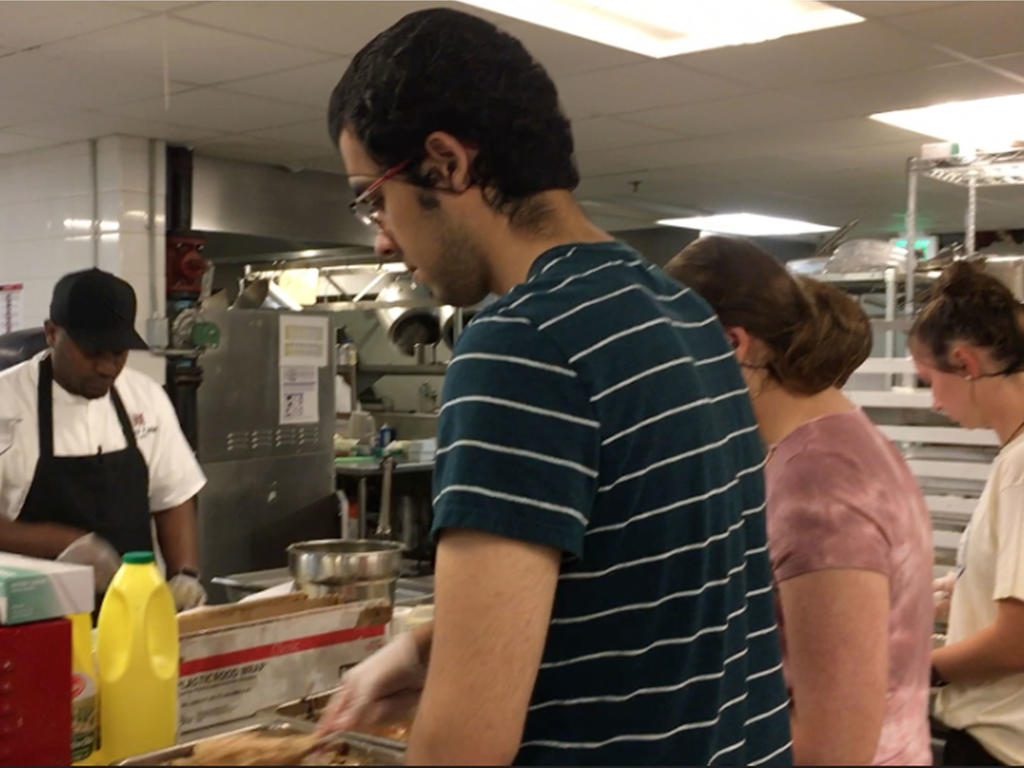Rhodes’ Food Recovery Network (FRN) is an initiative created by students during the 2015-2016 academic year to prevent and alleviate food waste; students transport unserved leftovers from the Catherine Burrow Refectory (a.k.a. the Rat) to local soup kitchens. “Currently, one of our biggest food-based problems in the United States is the amount of food waste we create due to our consumption practices,” says Professor Kimberly Kasper, who has been the faculty advisor since the program’s inception.
The Food Recovery Network has a mission that is two-fold—community engagement and awareness. The untouched foods are recovered each Tuesday and Friday at 3 p.m. and taken to three different soup kitchens, including ones operated by St. Vincent De Paul Food Mission, St. John’s United Methodist Church, and First Congregational Church. About 150 to 200 pounds of food from the Rhodes dining hall are recovered per week.
In terms of awareness, the FRN board in spring 2017 proposed that trays be removed from the Rat based on a Weigh-In Wednesday event where the uneaten food on plates was collected and measured. “With trays, people tend to take more and waste more,” says Tate Mulligan, who is one of the FRN’s founders and serves on its board. The weigh-in showed that one-third less food was wasted when trays were not present, and after a student body vote, the trays are not being used this semester. Emily Faber ’19, Mary Crowell ’17, and the Rhodes Student Government were also instrumental in this process. Mulligan acknowledges the validity of wanting a tray but that food such as unserved fruits or pizzas could benefit soup kitchens that not only have many people to feed, but also have budgets and often run out of food. “I love people and quickly came to know many at the soup kitchens,” she says. “Aramark Food Service Director Julia Clay also has been an angel.”
In addition to Mulligan, current board members include Alex Coughlin ’19, Alisa Redding ’18, Lelo Shamambo ’20, Maggie Palopoli ’20, Zach Abdo ’19, Zach Thornton ’19 and Zoe Feder ’20. The board has a volunteer list of up to 75, with 15 to 20 of those volunteers consistently helping to recover food. The FRN efforts have not yet been measured in terms of saving money, though according to Mulligan, they do create an infrastructure that is effective and allows Rhodes to share resources with the community.
“I think that they are doing a tremendous job and can serve as a model for other college campuses which also are interested in decreasing their food waste,” says Kasper. The relationships with the soup kitchens work well, and Mulligan says volunteers, who commit themselves wholeheartedly to recovering and delivering food, see their efforts as not just a service but as a logical solution.
By Meg Jerit ’20
Maggie Palopoli and other volunteers preparing food to be taken to local soup kitchens (video courtesy of Meg Jerit)
